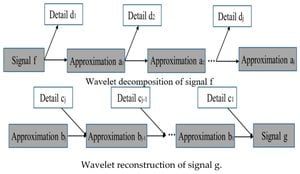The European stock markets are currently displaying mixed results, indicating varying levels of investor confidence and economic conditions following recent political developments. According to financial reports, the Frankfurt Stock Exchange saw a notable rise of 0.5%, buoyed by investor optimism after the recent elections in Germany. This is indicative of the climate of trust investors have toward German economic policies.
Madrid's market echoed this sentiment, recording gains of 0.4%. Conversely, the Milan stock exchange exhibited stability, thanks largely to strong support from its banking sector. Reports indicate banks played a pivotal role, maintaining market resilience even amid global economic fluctuations.
Meanwhile, the London stock market revealed some caution, with minor losses of 0.2%. Paris also faced declines, dropping by 0.8%, and Amsterdam saw its shares slide by 0.6%. These downturns could be reflecting growing concerns related to inflation and political uncertainties afflicting various European nations.
The currency market shows the euro hovering around parity with the dollar, recently trading at approximately 1.046 against the dollar. This stability was influenced significantly by the statements from Pierre Wunsch, the governor of the Bank of Belgium. Wunsch's comments signal the potential for the European Central Bank to pause interest rate cuts, aligning more closely with Germany’s economic stance, which could significantly impact currency exchange rates and stock market movements.
Regarding the spread between Italian BTPs and German Bunds, the difference reached about 114 basis points, increasing slightly from the earlier 108 basis points. This change highlights the influence of benchmark securities and reflects market sentiment surrounding European fiscal policies.
Shifts were also noted within the energy sector, with natural gas prices dropping by 2.2%, settling just above 46 euros per megawatt-hour. While this decrease may not carry much significance globally, it signifies potential ramifications for industries reliant on natural gas. On the other hand, crude oil prices remained stable at approximately 70.5 dollars per barrel, which might impact profitability for energy companies and their investment strategies.
Within Milan's stock market, the banking sector showcased positive performance, with shares of Monte dei Paschi di Siena jumping by 3%. Mediobanca displayed cautious growth of 0.9%, demonstrating some variability among the banks. Nevertheless, it's important to note how individual stock performances can diverge, with Tim's shares remaining unchanged and Campari's stock decreasing by two percentage points. Contrastingly, Saipem's stock experienced significant declines of 3% following news of its merger with Norway’s Subsea7, which saw its shares appreciate by 3.5% as well.
This fluctuative behavior among stocks indicates the complexity of investor expectations and responses to corporate announcements. The market remains dynamic, influenced by every report and financial statement released, shaping investors' trust and strategies.
Overall, today's analysis highlights the fragile state of the stock markets across Europe, impacted by political decisions, central bank policies, and investor behavior—all elements contributing to the broader economic narrative.



